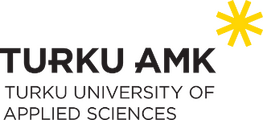The Urban diversities project brought together students, residents of super-diverse urban neighbourhoods, social workers and teachers from five different countries. Together, we learned to recognise and deal with urban complexities and tensions.
We did this through a blended learning course consisting of community service learning in the five cities involved, combined with virtual transnational exchange.
Throughout Europe (sub)urban areas are facing complex challenges. Cities are characterised by socio-geographical inequality in terms of income, housing, safety, mobility, opportunities, consumption, power, and privileges. At the same time, cities are also places of hope, development, social mobility and social innovation, and in many ways, are good for people and their well-being.
This duality of the city poses many questions and dilemmas for social workers: How to 'read' a city and gain insight into its dynamics? How to learn to navigate through different - sometimes contradictory and paradoxical - urban realities? How to gain insight into the needs and forces present? How to find, select and combine relevant and adequate knowledge? What is the role social workers should play in the interplay of forces between all sorts of actors who are active in the city?
To prepare students for practising social work in complex urban contexts, lecturers from Brussels (Belgium), Turku (Finland), Manchester (UK), Debrecen (Hungary) and Utrecht (Netherlands) developed the course 'Urban Diversities'. The central focus of the course is to strengthen the capabilities of future socially engaged professionals (including social workers, social care professionals, youth workers and community development workers amongst others) to intervene effectively in situations that involve urban tensions and complexities.
The Urban Diversities course focuses strongly on combining dual strands of local and transnational learning. In one strand, students participate in a Community Service Learning (CSL) trajectory in their own city. Within CSL, learning takes place together with the social work field and alongside the public of participating organisations. In this sense, it forms a unique partnership between the university, the field and the community.
The second strand of collaborative learning focuses on transnational exchange. Students, lecturers and social workers from the various cities involved meet each other online on a regular basis. They receive conceptual input, discuss their CSL experiences together, look for similarities and differences between the different local settings, and jointly develop new experiential knowledge about the role of social workers in a complex urban context.
Publications
- Sociaal.Net: Schrooten et al. - De grootstad vraagt om ander sociaal werk
- Socialevraagstukken.nl: Schrooten et al. - Grootstedelijk sociaal werk moet met andere ogen kijken
- Social Work Education: Claes et al. - Community service learning in complex urban settings
- Engaged Learning in Belgium: Claes et al. - Community Service Learning - An appropriate model for social work education in complex urban settings
- Course manual
- Guidebook Community Service Learning
Project partners
University of Applied Sciences Utrecht, Manchester Metropolitan University, University of Debrecen, Turku University of Applied Sciences
Get to know our researchers
Want to know more about this project?
Contact us
Visit the project website
Our partners
Vlaams Welzijnsverbond, SOM, VIVO, Jes and Dbroej. This project is happening with the financial support of the European Social Fund (ESF).

GE_START: Qualifying Program for Social professionals
In 2020, Europe WSE (formerly the Flemish ESF agency) launched call 472 'Employed people and qualifying pathways'. Focusing on training, upskilling and retraining of employed people, through this call, Europe WSE wanted to fund pilot projects that explore the possibilities and framework conditions of the participation of employed people in vocational and educational qualifying pathways. In doing so, it encouraged cooperation between employers, sector organisations, education and training providers.

Odisee, SOM, JES, D'Broej, VIVO and the Flemish Welfare Association joined forces to develop a joint project entitled 'Qualifying pathways for social professionals'. The aim of this project was to set up a widely accessible training course for workers in the broad social sector. With this training we wanted to strengthen social professionals in their profession and warm them up and prepare them for entry into higher education.
In a two-year trajectory between November 2020 and December 2022, an action research project was designed to investigate what such a programme could look like and what the thresholds, risk factors and success factors are.
In this publication, you will find a representation of the process and the main results.
Colophon
Authors Ken Van Roose, Jan Claeys, Hilke Peremans, Jos Sterckx, Tanja Nuelant Hoofdonderzoeker Ken Van Roose
Researchers/learning group supervisors Benedicte Serroen, Helen De Sadeleer, Lydwine Meyhi, Liesbet Christiaen
Steering committee Aagje Frederickx (Vlaams Welzijnsverbond), Hilke Peremans (Odisee), Jan Claeys (Odisee), Jeroen Bels (JES), Jos Sterckx (Odisee), Ken Van Roose (Odisee), Linda Beirens (Vlaams Welzijnsverbond), Luc Van Waes (VIVO), Lies Verhoeven (D’Broej), Maarten Loncin (SOM), Tanja Nuelant (Odisee)
Reference Van Roose, K., Claeys, J., Peremans, H., Sterckx, J. & Nuelant, T. (2022). GE-START | EN-AVANT – Kwalificerende trajecten voor sociale professionals. Proeftuinen voor het opleiden van werkende lerenden in sociaal-agogisch werk. Brussel: Odisee/cluster SAW.
December 2022
Get to know the researchers
Want to know more about this project?
Hybrid working is a new challenge for all of us to continue to work healthily and vitally. But... how do you deal with it? You can discover it in our new trajectory 'Feeling good, at home and at work'. You can participate individually or with your entire team or organization.
With this project, we want to promote the well-being of employees in hybrid working by giving them more control over adapting and aligning work and private life. We do this by offering them guidance with a combination of the following activities:
- an email process with useful tips, exercises, etc. to support their job and off-job crafting plan.
- An in-depth insight into their psychological needs and stress level
Feeling good in hybrid working
The combination of home and office work (hybrid working) has many advantages, but also some disadvantages: extra stress, the boundary between private and work is blurred, loneliness... That presents us with the challenge of finding a new private work balance. The trajectory ‘Feeling good at home and at work’ can support you in this. You can participate individually or with your entire team or organization.

Problem definition
It is expected that more employees will work hybrid – a mixture of working in the office and from home. It is important to organize 'hybrid working' in a smart way and with maximum attention to the well-being of the employees. After all, research shows that working from home leads to physical and mental complaints. These complaints are because home workers often work longer than their colleagues in the office, have less social contact, and experience fewer non-work-related moments during their day so their days quickly slip into one gray matter and experience a less good work-life balance at the expense of private life. Over time, these complaints can lead to serious health outcomes, such as exhaustion and burnout, which in turn can lead to negative organizational consequences, such as increased absenteeism.
Job and off-job crafting
The negative effects of working from home can be buffered by supporting managers and colleagues, but more bottom-up well-being approaches can also benefit. One of these approaches is job crafting, in which employees adjust their job to make them a better match with their talents and needs. Research has shown that job crafting can promote employee well-being. Feeling good in your job is not only about the work itself. How you stand outside of your job in life also counts. Just as people can proactively adjust their jobs, they can also proactively adjust their activities outside of working hours to compensate for their unmet needs at work. We call this approach off-job crafting.
Purpose
We want to promote the well-being of employees in hybrid working by giving them more control over adapting and aligning work and private life. We aim to increase the awareness of:
- their psychological needs, and of their demands and resources both at work and in their private lives;
- job and team crafting opportunities; and stimulating job and team crafting behavior among employees
- off-job crafting opportunities; and encouraging off-job crafting behavior among employees (including during breaks at work).
Method
To achieve this, we develop a guidance process with a combination of activities, in particular:
- online training/webinars on well-being, job, and team crafting & off-job crafting, and work-family balance;
- guidance in the development of a job and off-job crafting plan using a step-by-step plan offered by us and
- an email process with useful tips, exercises, etc. to support their job and off-job crafting plan.
This trajectory will be offered to 350 participants and evaluated using a pre-and-post measurement.
Output
- A detailed script of the guidance process including step-by-step plans, worksheets, tips and tricks, references to literature, lessons learned, etc. This script will be freely available for consultation and download by all interested parties via the Odisee website.
- Organizing a study moment for prevention services, HR consultancy companies, large companies, and other interested parties to introduce them to the results of our project (detailed trajectory, scenario, results of the impact measurement, etc.) and to guide them in its use.
- Detailed job and off-job crafting trajectory will be included in the regular services of Acerta Consult.
Get to know the researchers
Want to know more about the project?
The research project departs from a broad interpretation of homelessness, including people who are hidden homeless because they find temporary solutions by staying with relatives or friends, living in squats or in other insecure housing. We investigate the functioning and the role of informal social work practices in their lives. Based on a survey of some 160 NPOs, 4 case studies of informal social work practices and participatory research with people with lived experiences of homelessness, we explore how informal social work practices support these people and what the possibilities and limits of these informal actors are.

Publications
Hidden homelessness : a scoping review and avenues for further inquiry
The role of non-profit organisations in the support of people experiencing homelessness in Brussels. European Journal of Homelessness, Volume 16, No. 1, 2022
'Dak- en thuisloosheid is niet alleen een groeiend, maar ook een complex probleem', MO* 04/02/2022
‘Wat de onderbelichte kanten van dak- en thuisloosheid in Brussel ons leren’. Knack opinie 13/07/2021
Corona maakt het onzichtbare zichtbaar: migratie verandert dak- en thuisloosheid. Sociaal.net 28/05/2020
Verborgen thuisloosheid: ‘Het huis waar ik slaap is geen thuis’. Sociaal.net 10/06/2020
Case reports:
- Sztab Pomocy Belgia, februari 2022
- Open Deur, maart 2022
- Front Commun des SDF, april 2022
- IMMOC, juni 2022
Our partners
- Kenniscentrum Welzijn, Wonen, Zorg;
- La Strada, Steunpunt Thuislozenzorg Brussel;
- Rhea, Expertisecentrum Gender, Diversiteit en Intersectionaliteit (VUB)










